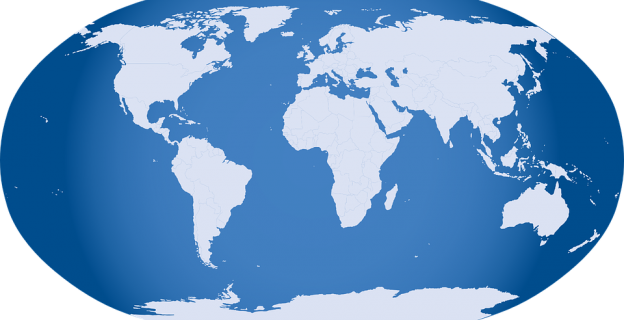United States, Australia, India, and Japan to advance a free Indo-Pacific.
Senior officials from the United States, Australia, India, and Japan met in Bangkok on May 31, 2019 for consultations on their collective efforts to advance a free, open, and inclusive Indo-Pacific. The four nations reaffirmed their shared commitment to preserving and promoting the rules-based order in the region. They underscored their intent to continue close coordination and collaboration in support of sustainable, private-sector led development, maritime security, and good governance. Meeting participants discussed initiatives undertaken by each country to encourage transparent, principles-based investment in quality infrastructure in accordance with international standards and leverage the potential of the private sector. They highlighted their efforts to maintain universal respect for international law and freedom of navigation and overflight. The officials agreed to continue to explore opportunities to enhance cooperation, including in support of regional disaster response, cybersecurity, maritime security, counterterrorism, and nonproliferation. Participants also noted their desire to work with like-minded partners and allies to promote a transparent, rules-based approach to trans-boundary challenges.
In reviewing recent developments in the region, they welcomed ASEAN’s efforts to develop an Indo-Pacific Outlook. The four countries further affirmed their strong support for ASEAN centrality and ASEAN-led regional architecture, as well as their support for other regional institutions, including the Indian Ocean Rim Association and Pacific Islands Forum. The four countries underscored their intent to continue regular consultations on Indo-Pacific engagement and initiatives together and with other interested countries and institutions.
U.S.-Brazil Disarmament and Nonproliferation Dialogue
Assistant Secretary of State for International Security and Nonproliferation Dr. Christopher A. Ford will travel to Brazil and Argentina on June 1-6, 2019.
In Brazil, Dr. Ford will participate at the U.S.-Brazil Disarmament and Nonproliferation Dialogue in Brasilia. This meeting is one of several ongoing exchanges held by the United States and Brazil to strengthen bilateral cooperation in nuclear disarmament and arms control; export control; IAEA safeguards, and nuclear, biological and chemical weapons proliferation issues.
In Argentina, Dr. Ford will attend the 11th Plenary Meeting of the Global Initiative to Combat Nuclear Terrorism (GICNT) in Buenos Aires. The GICNT aims to strengthen global capacity to prevent, detect, and respond to nuclear terrorism. All GICNT partners have voluntarily committed to implementing the GICNT Statement of Principles, a set of broad nuclear security goals encompassing a range of deterrence, prevention, and response objectives. The meeting will also provide a forum for partner nations to showcase their contributions and share recommendations that will inform the direction of GICNT activities for 2019–2021.
Pompeo to Switzerland
Secretary Pompeo will travel to Switzerland on May 31, where he will meet with President Ueli Maurer and Foreign Minister Ignazio Cassis. The Secretary’s visit will mark the first official visit of a U.S. Secretary of State to Bern in more than 20 years. The Secretary will underscore our countries’ strong economic partnership, security cooperation, and bilateral ties. The Secretary will also meet with Swiss business leaders and World Health Organization Director General Dr. Tedros Ghebreyesus.
PROMOTING AND STRENGTHENING OUR ECONOMIC PARTNERSHIP
- Switzerland and the United States have enjoyed long-established and productive bilateral relations since a unified Swiss state was formed in 1853. In 2017, total U.S. goods and services trade with Switzerland reached $121.9 billion, up from $65.9 billion a decade ago.
- Our two democracies enjoy high levels of economic freedom, a strong rule of law, and a welcoming business environment. The U.S. is one of the top destinations for Swiss investors. Conversely, the U.S. is one of the largest foreign investors in Switzerland. Secretary Pompeo and Swiss Federal Councilor and Foreign Minister Ignazio Cassis met in Washington in February to discuss ways to deepen our economic and trade relationship. Our two nations continue to explore a potential bilateral trade agreement.
- The United States and Switzerland also enjoy robust tourism ties. Almost half a million (441,270) Swiss visited the United States in 2017, and millions of Americans visit Switzerland annually. Tourism is a great boost to our respective economies and helps to deepen cross-cultural understanding.
- Swiss experience in vocational education offers a compelling model for developing the American workforce. In December 2018, Switzerland and the United States signed a Memorandum of Understanding to advance our cooperation in this area. We are grateful to the Swiss, particularly to those companies investing in the United States, for sharing their expertise.
SHARED INTERESTS AND SECURITY COOPERATION
- Switzerland and the U.S. benefit from ongoing security cooperation. We exchange expertise on anti-money laundering efforts, counterterrorism, cybersecurity, and crisis preparedness.
- Experts from our countries exchange expertise on anti-money laundering efforts, counterterrorism, regulatory cooperation, and intellectual property rights. We also collaborate on crisis management preparedness and cybersecurity.
- Two U.S. companies – Boeing (F/A-18 Super Hornet) and Lockheed Martin (F35) – are competing in Switzerland’s New Fighter Jet Acquisition tender. Raytheon (Patriot system) is the sole U.S. competitor for Switzerland’s ground-based air defense system. We are honored to be represented by these three companies and are proud of the high-quality products they offer.
DARIA NOVAK served in the United States State Department during the Reagan Administration, and currently is on the Board of the American Analysis of News and Media Inc., which publishes usagovpolicy.com and the New York Analysis of Policy and Government. Each Saturday, she presents key updates on U.S. foreign policy from the State Department.
Illustration: Pixabay
